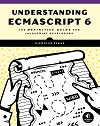I have Lyme disease
As best I can recall, it all started around 15 years ago. I was finishing up my sophomore year at college and had just taken my last final exam. The following Monday I would be heading into the hospital for some diagnostic tests related to persistent and as-yet-undiagnosed digestive issues. I woke up on Sunday feeling sicker than I’d ever felt in my entire life. My head was pounding, my body ached, I was nauseous, dizzy, and tremoring; the very definition of “flu like symptoms.” I spent the entire day in bed and prayed I’d feel better for all the tests I had to endure the next day. I didn’t.
When I got to the hospital they took one look at me and immediately hooked up an IV. I was dehydrated, bordering on delirious, and so weak that I needed help walking. Once they laid me down, I didn’t have enough strength to lift my head off of the pillow. Tests were run and everything came back negative. They sent me home and I was essentially bedridden for three months with all of these symptoms persisting.
I would eventually recover with the help of a chiropractor who surmised that I must have severe food allergies. Following a very strict diet and supplement protocol, I slowly regained my strength. It would take a year for me to fully recover, or so I thought.
Not the end
Although I was feeling much better, I would still get episodes where the symptoms would recur. They would happen every 2-3 months and I’d be sick in bed for 1-2 weeks. The episodes would come on suddenly and, try as I might, I was never able to discern a pattern. As a plucky 20-something, I pushed through as much as I could, and took to bed only when absolutely forced. After an episode was over, I’d feel back to normal. The only lingering symptom was incredibly unrestful sleep (as in, I could fall and stay asleep easily, but upon waking, I would feel like I didn’t get any rest) and persistent exhaustion.
Over the years I’d seek the opinion of dozens of doctors and alternative healthcare practitioners. Everyone was baffled. No one had experienced anything like what I was describing. I amassed quite an array of diagnoses: chronic fatigue syndrome, fibromyalgia, depression, anxiety, eating disorder, malabsorption. The one that stuck was chronic fatigue syndrome, as it was the best atomic description of what my body was presenting.
Chronic fatigue syndrome is strange in that it’s the name for a set of symptoms similar to mine but there is no test for it. You are deemed to have chronic fatigue syndrome only after a doctor has ruled out every other possible cause of persistent fatigue. And at that point, you’re pretty much screwed. There are no treatments and no cure, which makes sense, because no cause has ever been identified.
The symptom brigade
As time marched on, the amount of time in between episodes decreased and the length of the episodes increased. I also starting collecting new symptoms, each one more bizarre than the last, seemingly without cause. I started losing weight without trying. I went from a fit and athletic 165 lbs. to 160, and then 155, 150, all the way to my recent lowest of 128. It happened gradually but persistently over 10 years. Doctors accused me of having an eating disorder, of being too depressed to eat, of making myself sick to get attention. I told them over and over that I was eating all the time and nothing I did worked; they didn’t believe me. And so I sat by and watched, horrified, as my body grew weaker and more emaciated.
I started getting bizarre skin rashes that doctors couldn’t identify. I started losing my hair in my early 20s despite a favorable family history regarding male pattern baldness holding out until middle age. I seemingly acquired more food allergies with every passing year, defying the belief of every doctor I saw. I developed a chronic cough that made some think I was secretly smoking.
Then the neurological trouble started. I noticed my memory slipping and my short-term memory being effectively reduced to dog-like lengths. I found myself making mistakes on things I should know. I had trouble solving problems that I knew I should make short work of. I had trouble recalling words and names of people. My ability to concentrate disappeared – every conversation, every thought was a struggle.
I woke up one morning to find both of my arms numb and tingling. After another week, the tingling had spread to my neck and face. The tingling started to subside, giving way to intense nerve pain in my arms that was initially misdiagnosed as a repetitive stress injury (it didn’t respond to any RSI treatment). Shortly thereafter, after an intense (and undiagnosed) pain in my throat, speaking became a struggle. My voice ended up hoarse all the time and even short conversations caused immense pain. It felt like my throat just wouldn’t respond to my command to speak.
More recently, I’ve had bouts of extreme confusion. I’ve been stuck trying to complete everyday tasks. My brain feels like it doesn’t have the knowledge. It’s a combination of forgetting how to do something combined with not being able to solve the problem again, and it’s one of the most helpless feelings I’ve ever experienced. Last night, I looked at a closed container of parmesan, then back to my plate, then back to the parmesan, impatiently waiting for my brain to tell me how to open the container and pour the cheese onto my food.
Coping mechanisms
If you’ve ever met me, you may be wondering at this point whether I was experiencing any of these symptoms while with you. The answer is yes. For a long time, my life has been a carefully crafted act and series of processes to allow me to function somewhat normally. I struggled through every talk I’ve given, every interaction I’ve had. You see, I learned early on that people are very unsympathetic when it comes to my condition. When I initially got sick, my girlfriend of four years dumped me because it’s no fun dating someone who doesn’t feel well enough to go out. My senior year in college, the drama club took away my part because I had a bad episode eight weeks before opening night and had to miss a week of rehearsal. Those experiences convinced me that this was a secret I would need to keep or else I’d be denied the life I wanted.
Chronic fatigue syndrome, though officially recognized by the CDC, is still treated primarily as a psychological disorder. If you have cancer or AIDS, you are a victim who is bravely fighting a horrible disease. Society regularly labels these people as brave, courageous, and heroic. They are incredibly strong and we cheer them along in their pursuit of health (several members of my family have had, and beaten, cancer, and they are undeniably heroes). If you have chronic fatigue syndrome, though, society views you as weak, as emotionally inferior and constitutionally lacking. People tell you to “snap out of it” or “it’s just depression,” as if you could just decide to be healthy and it would be so. Even people you think love you still harbor secret opinions, “well, he is a bit of a hypochondriac.” These are the people we ridicule on sitcoms: the kid who needs an inhaler, the teenager with food allergies, all labeled as “weak” and pitiful. Not victims of unfortunate circumstances like those fighting a “real” disease, but people who have chosen to be weak, and therefore, deserve ridicule if for no other reason than it might snap them out of it.
So I devised ways to continue functioning, how to act healthy even when I felt horrible. I had no other choice and I was damn good at it. Some of the girls I dated never knew anything was wrong. Close friends and family members were kept in the dark. I was able to arrange my life in such a way that I could keep up the appearance of health. I became adept at excuse-making when I knew I was physically not well enough to do something. I had a cold. I’ve been working too much and need to rest. I had a wild weekend last week, so this weekend I’m just going to relax.
To make up for my failing memory and inability to concentrate, I started writing things down. The writing that you may know me for now was born out of a realization that I would most likely not remember what I had done or learned. The very first article I wrote was just for myself, written in such a way that I knew I would be able to re-learn it by reading the article carefully. It was only when a friend saw the article and convinced me to publish it that I realized the way I describe things for myself would be useful for others as well.
I also crafted my personality carefully to avoid energy-sucking behavior. While in my early 20s I was gregarious and always had something to say, I tapered down unnecessary conversation as my energy levels decreased with the passing of time. Those who meet me today tend to describe me as opinionated, but also as someone who will really listen. That was a purposeful change because listening takes far less energy than talking, and so I want to save my energy to say and do the really important things (see also: spoon theory).
Over the years I’d need to cut down on extracurricular activities to preserve my energy. I used to go to the gym four times a week to lift weights. I kept cutting down until I no longer went, there just wasn’t enough energy. I used to go out on the weekends, but in the past few years, all I’ve done is go to work and then come home to rest. I’ve had to give up things like meeting friends for dinner, going to shows, and other social events. That necessarily meant no more dating – the facade became too much energy to maintain while not at work, and it’s hard to start a relationship when you never feel well enough to go out and do anything.
The hardest part has been the gradual increase of isolation. Those with chronic fatigue and similar conditions often cite this as the most difficult part of their condition. Losing touch with friends, not being able to see loved ones, and without hope of meeting new acquaintances, life becomes quite dreary. If you let it.
This is why I believe in the transformative power of the Internet. I was able to still feel a part of the world no matter how sick I felt. Email, Twitter, Facebook, are all godsends to those with limiting health issues. It’s not quite the same as having someone there with you, but it helps immensely. I can do my food shopping, order gifts, and do all my banking online. What is a convenience for most people is how I’ve been able to stay self-sufficient for so long.
Mind games
A couple years ago, I recognized that my health had been on a steady decline. I mapped out what I thought was the most probable future: I estimated that at my rate of decline, without intervention, I would likely be functionally incapacitated within five years. I’m not talking about needing to work from home permanently, I’m talking about being unable to even work from home due to the physical stress and my deteriorating cognitive ability, effectively someone who would need to be in a nursing home. That’s not something most people even consider in their 30s, but I had to be realistic and plan appropriately. I got my affairs in order, put together a will, a power of attorney should I become incapacitated, and a living will. I figured the least I could do was to make it easy in the seemingly likely event that I’d be unable to care for myself in the not-too-distant-future.
I had promised myself a long time ago that I would never give up looking for the answer, but after over a decade of failing, I was beginning to doubt that the answer would arrive in time. So while I continued researching new studies on chronic fatigue syndrome, I decided to focus on the one thing I could control: my thoughts.
When I was little, my dad used to always talk about “mind over matter.” He’d use that phrase over and over again, and it stuck. Control your thoughts and you can exert some sort of control over the world through your reactions to it. So I started looking into ways of quieting my mind and taking back control of my thoughts. It took me several years, but through a combination of various meditation practices and hypnotherapy, I was finally able to create peace in my mind. I had tools for dealing with the horrific esoteric thoughts that could creep in when I wasn’t paying attention (“am I being punished?”, “am I bad person and so I deserve to suffer?”), I learned how to focus my mind on a task despite the firestorm in my body, and learned to accept what my body was telling me rather than trying to fight it.
I finally reached a point of peace. I wasn’t depressed, I wasn’t anxious, I just was. And in just being, I found more ways to calm my mind. The best way? Writing.
Writing became a form of meditation for me. I’d get lost as the words flowed from my mind effortlessly, with a gentle focus that made me feel peaceful and strong. Once I got into the flow of writing, whether a technical article or not, my mind relaxed into a familiar and comfortable pattern. It was pacifying to my mind and body. And so writing became my primary escape.
No matter how I felt, or how upset I might get about any type of situation, I would start writing so long as I felt well enough. It didn’t even matter what I was writing. I’d write letters to no one in particular, technical blog posts for this site, non-technical blog posts under a pseudonym on other sites, books, articles…it didn’t matter, what mattered was the writing. I can write for eight hours straight without a break when I get going. The meditative feel of the experience is such an available escape from however I’m feeling that I indulge regularly.
This experience is exactly why I tell aspiring writers to just write, about anything or nothing in particular, regardless of who might read it. Writing has been so soothing and comforting for me, that I can’t imagine what I would be like without it.
Lyme disease
How I discovered I have Lyme disease rather than the much more mysterious chronic fatigue syndrome is a story that some will have trouble believing. Suffice to say, when you’re fed up with doctors telling you you’re not sick, you will do anything and see anyone who might give you a glimmer of hope. You seek out the strange, the bizarre, because what other choice do you have?
I had been seeing a wonderful hypnotherapist who helped me process a lot of baggage and finally release it. For some, this is the most esoteric thing they’d consider, but it’s nowhere near the strangest type of healer I’ve ever seen. After one of our sessions, she told me that while she enjoyed working me, her gut was telling her the root of my problems was physical and not emotional. She then referred me to a strange old lady who practices a type of healing art related to the body’s energy field. The hypnotherapist assured me that this would be a bizarre visit, but it would be well worth it.
The old lady hobbled along with the help of a walker and used a technique called applied kinesiology to ask my body questions. What would follow was nothing if not the most entertaining evaluation I’d ever experienced. She proceeded to ask my body yes and no questions, and waiting for reactions in her partner’s muscle strength. Yes, it’s just as weird as it sounds, but I was desperate. Then she started asking my body if it had specific types of infections that I had never heard of. She used the word spirochete, which I had never heard of before. She recommended some herbs and wrote down what she had found.
Now, I’ve been to my fair share of strange health practitioners over the years, and as such, developed a very finely-tuned bullshit detector. I could tell when people were reaching or clueless, and I could tell when people were on to something. So I went home and did what anyone would do: I opened up Google and started typing in all the words I didn’t know. When I did that, all that came up were articles about Lyme disease.
I immediately did more research and ordered a book that I found from following the articles. The more I read the book, the more excited I got. The story sounded exactly like me, from bizarre beginnings to tests all showing nothing was wrong to recurring episodes of poor health. My heart started to beat faster and a growing amount of excitement surged in my body. Could this be it?
I ordered several more books on Lyme disease and started researching specialists in the area, eventually settling on a doctor not five minutes from my apartment. It took a couple of months to get in to see her. Because her specialty is fatigue-related disorders, including Lyme, I wanted to present her with my symptoms only and let her tell me what she thought was going on. I didn’t mention Lyme at all, because I didn’t want to unintentionally affect the diagnosis, I just relayed all of my symptoms and waited for her to respond. After about 30 minutes of listening to me name off symptom after symptom, she stopped and said, “So here’s my theory. I think around 15 years ago you got bitten by a deer tick and you have Lyme disease.”
She ran a lot of specialized bloodwork for Lyme disease and several other types of infections that are frequently seen with Lyme disease, and when I got the results back, they confirmed the diagnosis. I have Lyme disease along with a couple of related coinfections. I started treatment five weeks ago, and the average treatment period for chronic Lyme disease is 1-2 years. The treatment has some very unpleasant side effects, so I have a long road ahead. But for the first time, I have a path to travel.
Why share now?
You may be wondering why I’m sharing my story now. I debated whether I should or not, but upon seeking some advice from friends, I feel like it’s the right thing to do. I’ve been really sick since the end of last year, I’ve been stuck in a bad episode for months and so I’ve stopped giving talks, and more recently, have been forced to work from home due to my condition. I’ve been blowing off invitations for all kinds of things, lunches, talks, conferences, meetups, and I want everyone to know that I’ve not suddenly become a shut-in who doesn’t want to interact with people. It’s that I’m very sick and I’m trying to get better.
I’ve worked very hard to craft my public persona into something I’m proud of, and I realized that writing this post means I could very well end up being labeled as “that guy JavaScript guy with Lyme disease.” In one post, I would redefine myself publicly in terms of my disease, and that frightened me to no end. The years of trying to hide how sick I felt and the scorn I felt from people judging me as weak is still very fresh in my mind. I wasn’t sure if I was ready to embrace that.
However, something amazing has happened as a result of my illness and diagnosis. I reconnected with a childhood friend who had similar symptoms for years, and it now looks like she has Lyme disease and will be able to get better with treatment. Another friend relayed my story to her friend, who had suffered with a lot of similar symptoms, and she is now investigating Lyme disease as a possibility. There is so little attention on Lyme disease that it often goes misdiagnosed, sentencing people to miserable symptoms simply because not enough people understand the disease. I realized that everything I’ve been through could help others if I shared my story, and if my experience can save even one person from one day of suffering, then it’s worth any personal discomfort I might feel.
Be your own advocate
If you take anything away from this post, I hope that it’s this: be your own advocate. Listen to your body, no one knows your body better than you. Doctors may run tests that come back negative, but just like code, you can’t find the bug if you’re looking in the wrong place. Don’t let anyone convince you that your problems are all “in your head” and don’t convince yourself that suffering is normal and acceptable. It is not.
If you have unrestful sleep, persistent flu-like symptoms, strange infections and conditions, see a doctor and get all the horrible stuff ruled out. Sometimes the answer is simple and will show up on standard tests. I’ve had friends with similar symptoms find out they had brain tumors, or sleep apnea, or food allergies, or thyroid conditions. Those can all be tested for very easily. If you’ve ruled out everything else, start researching Lyme disease.
And if you’re suffering from some unknown, undiagnosed ailment, don’t give up on life. Absolutely everything worthwhile I’ve accomplished in my life occurred after I got sick. The only real limits you have are the ones you place on yourself.




